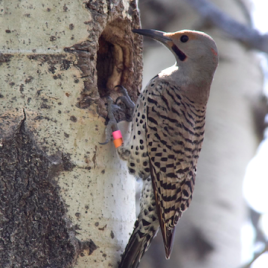Female northern flickers, a woodpecker species who breeds during summer all across Canada, spends its winter farther north on average than males, according to a new study. Sex differences in migration distances are well known, but this is the first time researchers observed female birds that travel less distance than males. The authors believe this […]
Tag: animal behaviour
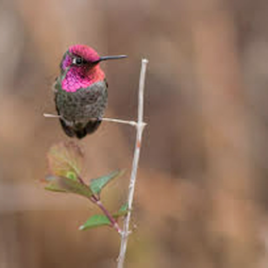
Birds watch where they’re going
Flying birds rely on movements in the surrounding environment to control their position in space, a new study has found. The authors filmed hummingbirds hovering in front of a projection screen and examined the birds’ response to moving bars and spiral patterns compared to static images. The researchers found flying birds are sensitive to movements […]
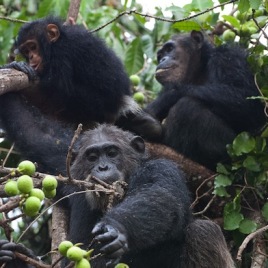
Chimps show gender bias in socialization
Among wild chimpanzees, mothers of sons spend more time interacting with other chimpanzees than mothers of daughters, according to a new study. In early infancy (0-6 months) when an infant is in almost constant contact with its mother, mothers of sons spent more time socializing with non-immediate family members than those with daughters. Additionally, mothers […]
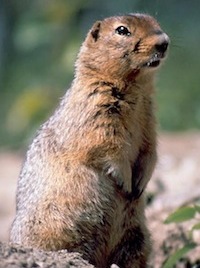
How squirrels avoid ‘roid rage
A new study shows that Arctic ground squirrels use anabolic steroids to beef up for winter hibernation, but that they have evolved systems to avoid the negative side effects. Most hibernating animals burn fat during the winter, Arctic ground squirrels hibernate at such low temperatures that they need to burn muscle as well. A previous […]
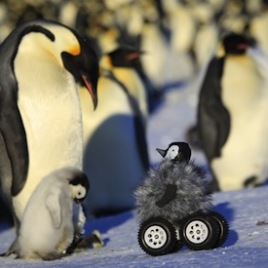
Robo-penguin could help monitor animal movements
A robotic rover disguised to look like a penguin has shown promise in helping to track animal movements. In some fields, such as fish farming, animals are implanted with passive integrated transponder (PIT-tags), a kind of electronic barcode that can be read by a hand-held device at a distance of up to 2 feet. However, […]
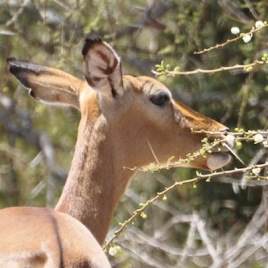
How carnivores impact the African landscape
A new study shows the presence – or absence – of carnivores can have a big impact on how many and what kind of trees grow in a landscape. Working in central Kenya, researchers looked at different tree species – with or without protective thorns – in areas where herbivores get eaten by their predators, […]
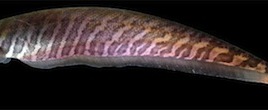
Electric knifefish signal their intentions
Electric fields emitted by knifefish can be used to predict their movements a few seconds before they occur, making these creatures an ideal model organism to study voluntary decision-making. Electric knifefish are nocturnal and live in very murky water, so they feel their way by sensing distortions in an electric field that they emit using […]
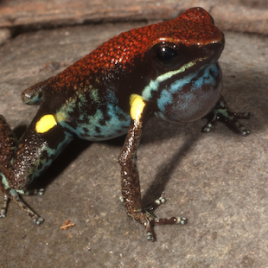
The poisonous singing frog
Poisonous and colourful frogs have more diversified mating calls than their non-poisonous counterparts, a new study shows. Researchers explain that when frogs evolve these kind of anti-predator strategies (bright colours and poison), they decrease the risk of being eaten by predators and are rewarded for more showy mating signals. Original research paper published in Proceedings of […]
Do STIs influence the evolution of monogamy?
One might think that the rate of sexually transmitted infections (STIs) could have an impact on whether an organism evolves monogamous behaviour, but a new study shows that it’s likely not as important as other factors. Researchers built a mathematical model to assess whether the benefit of reducing infection risk via monogamous behaviour outweighs the […]
Climate change will shift fish toward poles
A new analysis using computer models indicates that many commercially important species of fish are moving toward the poles and that some could disappear from the tropics altogether by 2050. The analysis used multiple models and covered 802 species to show that fish ranges are moving at a rate between 15 and 26 km per year. […]
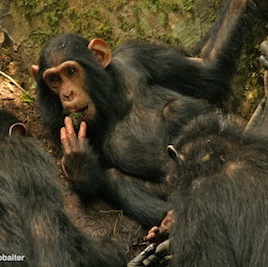
Roots of culture: How chimps learn from each other
It’s long been suspected that tool use in chimps is passed on socially, but a new study catches them in the act and puts a number on the impact. Researchers observing chimps in Uganda noticed that when one adult male discovered a new way of using leaves and moss to soak up water for drinking, […]
Chemicals could help bee colonies fight mite infestations
Researchers have identified certain chemical compounds that could help fight infestations of the parasitic Varroa destructor mite, a major pest for beekeepers. The mites use smell to distinguish between different worker types in the bee colony, preferring younger ‘nurse’ bees over older foragers. The team found that treating the bees with certain chemical compounds confused […]
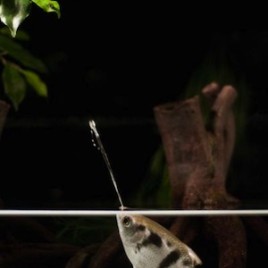
Archerfish are more skillful than previously thought
Archerfish use jets of water to shoot down insects for dinner, but new research shows they are more skilled at this than previously thought. Researchers trained archerfish to hit targets ranging in height from 20 to 60 centimeters from a precise location, and monitored how they produce the jet. They found that the fish adjust […]
A fish out of water . . . can get used to it
A new study shows just how much a fish can change when raised in a land environment, and sheds light on the role such changes could have played in the evolution of land animals. Bichir (Polypterus senegalus) have both gills and lungs and, although they prefer water, can walk across land to reach new habitat […]
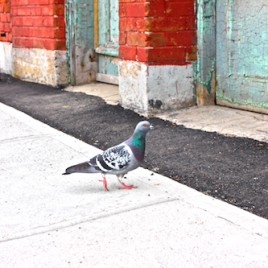
Humans and pigeons gamble in similar ways
A new study shows that when it comes to gambling and taking risks, humans and pigeons have more in common than you might think. The study had pigeons and humans choose between different coloured options to receive a reward. Through experience they learned that some colours gave guaranteed rewards, while others gave risky (probabilistic) rewards, i.e. […]
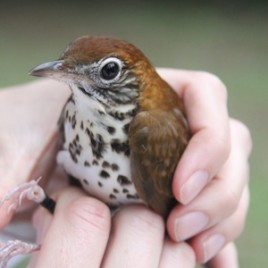
First flight: why young birds migrate more slowly
A slower migration from overwintering grounds in Belize and Costa Rica to breeding grounds in Canada may help young wood thrushes avoid competition with adults, a new study shows. Using data from geolocators – a kind of bird backpack that records location information – researchers showed that juvenile birds leave almost 2 weeks behind the […]
